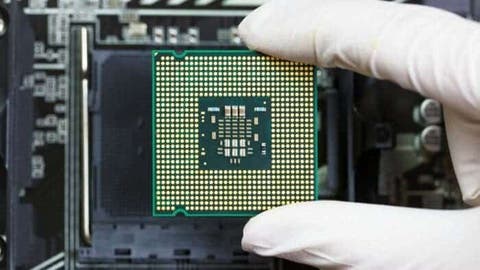India is very serious with its industrialization drive and its policies have been working so far. The Asian country has the market and the manpower. Over the past few years, we have seen many “Made In India” products without any issues. According to a recent report, the Indian Information and Technology Minister, Ashwini Vaishnaw, said that after India provides incentives for the semiconductor industry, it is expected that at least a dozen semiconductor manufacturers will begin to set up factories in the country in the next 2-3 years.
Ashwini Vaishnaw said in an interview with Bloomberg that the Indian government is committed to developing a complete ecosystem for the chip manufacturing industry and will start accepting applications based on its incentive plan from January 1.
“The response has been very good. All major companies are negotiating with Indian partners, and many people want to come directly here to build their teams.” Ashwini Vaishnaw said.
India intends to participate in several stages of chip manufacturing. It will participate in chip and display fabs as well as semiconductor packaging. Ashwini Vaishnaw claims that India will start with the manufacturing of mature components ranging from 28nm to 45nm. Furthermore, it will require candidate companies to provide roadmaps to move to more advanced production technologies over time. TSMC and Samsung, the world’s leading manufacturers of the most advanced chips, recently announced new fabs in the United States and Japan. This demonstrates the willingness of these companies to expand internationally.
The Indian government will make incentives available
Last week, the Indian government approved a six-year plan worth 760 billion rupees ($10 billion) to promote local chip production. This move may help the South Asian country reduce its burden on expensive imported materials amid global shortages. These materials are applicable in a variety of products from mobile phones to electric cars. Currently, almost all of India’s semiconductor needs rely on foreign manufacturers.
From Japan to Europe to the United States, India has now joined the ranks of these countries. Global shortage of important parts hit many important industries. This subsequently exposed economic vulnerabilities. Thus, India has set aside billions of dollars in subsidies for domestic chip manufacturing.
Vaishnaw also said that the government has notified the plan. Furthermore, the government also expects the compound semiconductor sector and design and packaging companies to get approval in the next 3-4 months.
“In the next 2-3 years, we will see at least 10-12 semiconductor factories put into production. We will see that display fabs may finally be complete or put into production. At least 50-60 design companies will be in the next 2-3…” Vaishnaw said.
